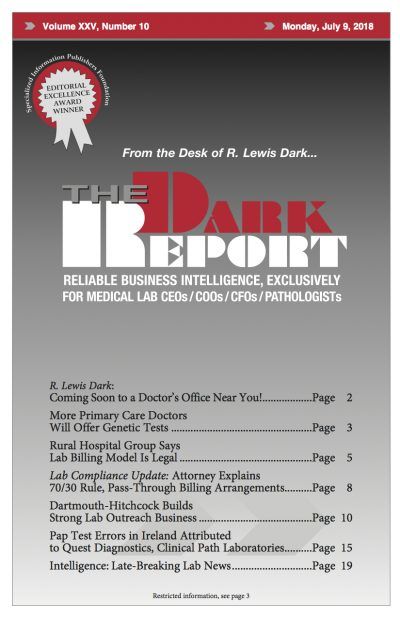CEO SUMMARY: As the debate grows more heated, supporters of hospital outpatient department (HOPD) billing schemes have ramped up their defense of the practice. The president of the National Association of Rural Hospitals tells THE DARK REPORT that rural hospitals are permitted to bill for hospital lab outreach program services under Medicare’s 70/30 shell rule. …
Rural Hospital Spokesman: Hospital Lab Outreach Programs Are Legal Read More »
To access this post, you must purchase The Dark Report.


